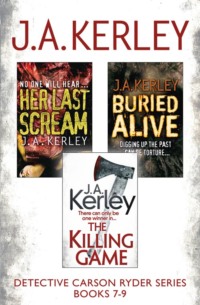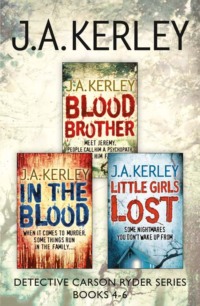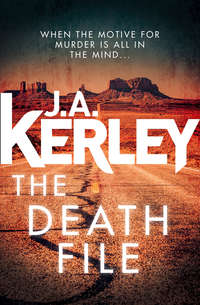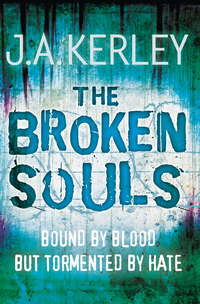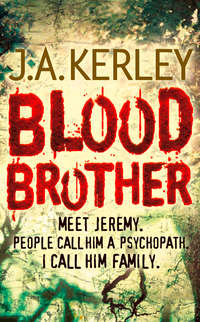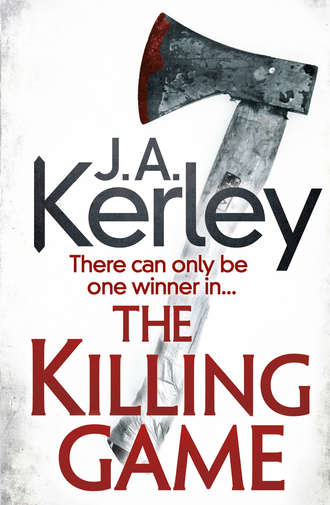
Полная версия
The Killing Game
“Hey, Carson, I need a bag of pretzels.”
“Ryder … now that I know you moonlight at a C-store, how’s about bringing in the Krispy Kremes?”
“Yo, CR … I need fifteen bucks on pump three.”
They were congratulating me, but being cops wouldn’t use those words. The accolades were in their grins. Or the thumbs up after the joke. I climbed the steps to the homicide department. Harry was on paid leave for three days, standard procedure for a cop involved in a killing.
“Carson!” a voice called. My supervisor, Lieutenant Tom Mason, stood at his office door, lean as a teenager though in his mid-fifties, wearing his cream Stetson and cowboy boots. Tom hailed from piney-woods Bama, but he always looked straight from a cattle drive across the plains. I banked in his direction.
“Chief Baggs wants to see you, Carson.”
I winced. “Why?”
“Probably something to do with last night. Make nice, Carson,” Tom said pointedly. “He’s the chief, right?”
I went upstairs to a hushed and carpeted row of offices inhabited by the brass hats of the department, crossing the floor with the same thought I get in funeral parlors: Where’s the nearest exit?
Chief Baggs’s personal assistant sat at a desk outside the closed door of his corner office. Though Darlene Combs was only in her late thirties, she’d already buried two husbands, one a suicide, the other OD-ing at a Jimmy Buffett concert. Her green eyes always seemed as irritated as her hair was red. I studied her outfit: a blue skirt hiked high to display plump thighs she thought slender; a white silk blouse a size too small, to highlight a pair of odes to silicone; and an Evan Picone jacket, to show she didn’t have to wear the big box knock-offs worn by the women on the lower floors.
Darlene said, “The Chief is very busy today.”
“He asked Lieutenant Mason to send me up here.”
“You’re not in the Chief’s appointment book.”
“Perhaps I’m in the footnotes.”
She tapped a button on her phone. “Chief?” she said. “Detective Ryder is out here.” She listened for several seconds, put the phone down. “He’s on the phone to the Mayor. It’ll be a few minutes.”
Every time I’d come here, I’d waited out a call to the Mayor. I once compared notes with Harry, who’d been here twice. Both times Harry cooled his heels while the Chief finished his consultations. Harry, ever the detective, had noted Baggs’s phone line wasn’t lit, but perhaps he communicated on a secret line like the Batphone.
Darlene returned to penciling a magazine page as I studied the walls, laden with photos of Baggs shaking every political hand in four states, including such Washington stalwarts as Alabama senators Jeff Sessions and Richard Shelby. Both men’s eyes seemed to say, Who is this geek at the end of my arm?
Though the degree in Police Administration was framed near center on the Wall of Baggs, most prominent was the law degree. The name of the institution was unknown to me, perhaps a correspondence subsidiary of Harvard or Tulane. While the bulk of the photos and certificates were in simple black frames, the degree was in a baroque gilt rectangle. It seemed a shade overwrought, but who was I to judge, being sans entrée into the world of police administration.
The ambition-prone Carleton Baggs was late to the top floor. Though he and a cabal of like-minded administrators had been headed upstairs several years back, Baggs had cast his lot with an ambitious manipulator named Terrence Squill who eventually ascended to Acting Chief. Squill’s career had slammed a wall when he’d been murdered by an even more ambitious manipulator.
Since Harry and I – me particularly – played a major role in the incident, we were not beloved of several old-timers in administration, feeling we had delayed their ascension to the uppermost ranks, thus costing them time and money. When the former chief retired last fall, enough years had passed for the scandal to have become history. Baggs, twenty years in grade and boasting well-framed degrees in law and police administration, got his shiny new Chief hat.
Darlene’s phone buzzed. “You can go in,” she said, not looking up from her pencilings. I shot a downward glance and saw Darlene was taking a quiz: “Test Your Hotness in Bed”.
I mumbled Somewhere between death and dry ice.
“What?” she said.
“I said you look lovely today.”
Chief Baggs was staring out his window, his back broad and blue in summertime seersucker. I could smell his cologne, one of those over-musked concoctions advertised by ageing jocks wearing towels. He turned, snatching a memo from his jacket pocket.
“Your lieutenant recommended you for a citation,” he said. “I want to present the award in a department-wide ceremony to let the public see what their taxes are paying for.”
The situation wasn’t about me, it was about the department’s image. Baggs pursed his lips and studied my clothes: green tee, cream linen jacket, jeans, black running shoes. “You’ll wear a uniform or a suit,” the Chief said, recalling the time I received a citation dressed in chinos and a T-shirt touting CRAZY AL’S MARINA AND BAR.
“I’ll do the department proud,” I promised, holding up a two-fingered Boy Scout salute as I backpedaled.
“One more thing,” Baggs said, halting me with an upraised hand. “Shumuchuru is taking a leave of absence to care for his mother. He can’t teach his class series at the police academy. We need a replacement, starting tonight. It appears, Detective Ryder, that you’ve never done a teaching stint.”
I resisted a groan. “The classes always seem to be at times when I’m indisposed, Chief.”
“The last time the academy asked, you said you had to visit a sick brother. Didn’t you tell me you were an only child, Detective?”
I had a brother, but not one I admitted to – for various reasons. Thus I had long fostered the only-child story. “A misunderstanding, sir. It was, uh, an uncle.”
“You’ve also claimed your house had fallen into a sinkhole. Do they allow sinkholes on Dauphin Island, Detective?”
“Uh, more like quicksand, Chief. The stuff can be treacherous if—”
“I don’t know why you’re dodging the academy, Ryder,” he scowled. “People like you usually jump at the chance to pontificate before an audience.”
I shrugged. “I don’t know what good I could do, Chief. They’re raw recruits. Kids, basically.”
“Meaning what exactly, Ryder?”
I shook my head, Baggs just wasn’t getting it.
“It’s a total waste of my time, Chief,” I said. “Pearls before swine.”
Chapter 4
“Class is about over for tonight, folks,” I announced. “Any final questions?”
I set aside the projector’s remote and studied the recruits, surprised to discover the class wasn’t entirely made up of dolts. Several were complete dullards, of course, a red-faced mouth-breather named Wilbert Pendel coming to mind. No matter what I said, Pendel wanted to talk about guns. The other students began telling him to shut up. He muttered, stamped a foot on the floor like a mini-tantrum, then sulked in silence.
But on the whole the class seemed several notches above my expectations. They were fast learners, too. A cell phone had gone off early on. “Don’t think of that as a phone,” I’d said. “Think of it as a warning bell. When the next phone rings I will stomp it into its components. Thank you.”
Not an electronic peep since. I’d explained various homicide cases solved by Harry and me – with histories, photos, news stories – and the recruits now regarded me with eyes both admiring and envious, which wasn’t offensive in the least.
In response to my call for final questions, a tentative hand climbed into the air. “I have a question, Detective.”
“What was your name again?”
“Wendy Holliday, sir.”
Initially, I hadn’t been well disposed toward the auburn-haired Holliday, her slender frame, piercing gray eyes and pursed lips reminding me of a temperamental college girlfriend, but the long-legged recruit was one of the night’s best surprises: observant, analytical, and inquisitive, making intelligent – if wrong – conjectures about cases presented.
Intelligence took brains. Right took years.
“Your question, Holliday?” I asked.
“I’d like to know your most nightmarish scenario, Detective Ryder,” she said. “Real or imagined.”
I started to wave the question away as frivolous, but when everyone in the class leaned forward with interest, I considered what truly frightened me and reached into my briefcase for the rolled coins I kept forgetting to take to the bank. I broke open a tube of pennies and poured them into my palm.
“Here’s my nightmare scenario,” I said, flinging the coins skyward. They tinkled down across the floor, spinning, rolling into corners, dropping at the legs of desks and chairs.
“Penny-ante crime?” said a recruit named Wainwright, buying a round of laughter.
“Come on, kiddies,” I said, stepping in front of the lectern. “What inference can be made from the pattern?”
Several recruits stood to better survey the floor. I saw a tentative hand.
“Yes, Miz Holliday?” I said. “Have you discovered the pattern?”
“I don’t think there is a pattern, Detective Ryder. The coins fell at random.”
“Bingo,” I said. “Imagine a purely random victim selection process: the killer walks down the street with closed eyes, opens them and sees someone – cab driver, elderly woman, shopper, child in a playground. He tracks and kills that person. Without a motive – monetary, sexual, psychological, power, vengeance – the detective is never sure one death is connected to another. It’s my idea of a nightmare situation.”
“What about evidence at the scene?” a recruit named Terrell Birdly asked.
“I was purposefully simple for the sake of the answer,” I said. “If the perpetrator leaves his prints behind – or blood or semen or the mortgage to his home – the case gets easier to solve. But let me enhance our scenario by giving the killer three traits: high intelligence, a basic knowledge of police procedures, and an awareness of the confusion he’s causing. Now you’ve got big trouble.”
“You’ve dealt with random killings, sir?” Birdly asked.
I shook my head. “I’ve never personally seen a killer without some form of motive, though it eludes the killer himself. Even with severely deranged minds, I’ve always found a motive behind the madness.”
I was making that information up on the fly. But it felt right.
“Seeing all the cases you and Detective Nautilus solved,” one young woman gushed, “I figure if anyone could catch a random killer, it would be you, Detective Ryder.”
She was cute and her breathy words sent a pleasant blush to my neck. “I expect you’re exactly right,” I said, bouncing on my heels. “And on that note, class is dismissed …” I held out my cupped hand, fingers making the gimme motion. “After the pennies have come home.”
Gregory had done a half-hour’s worth of faces followed by two strenuous sessions on his Bowflex, pushing to his limits as he watched his sweating body in the mirror, muscles shining and rippling.
Frail, Ema? I’ll show you frail … I’ll turn into the fucking Hulk next time.
He’d followed with a shower, then gone to his office to write code. He worked in a suit, but after being on the job four hours allowed himself to hang the jacket over the back of his chair and roll his sleeves to mid-forearm.
Gregory took a break, sitting in the dark with honeyed tea and graham crackers covered with organic peanut butter. He winced at the yowl of a horny feline outside his window. He had called the Animal Control department twice in the past week, but the cats eluded the nets.
After his recent breakfast with Ema, Gregory had considered her comments, then grudgingly purchased a Havahart Cat Trap and Rescue Kit, the most humane way to trap cats, according to Ema. He’d set the ridiculous cage-like contraption in his backyard at dawn. Probably time to check it.
Gregory changed from suit into chinos and a polo shirt. Tucking a flashlight into his pocket, he stepped into the backyard, the steamy air smelling of the pine straw at the base of the trees.
Feeling a delicious shivering in his loins, Gregory tiptoed to his burlap-camouflaged trap at the rear of the long yard. He snapped the fabric away and shone his flashlight down.
He had a cat.
Chapter 5
“… risking his life disguised as a convenience store clerk, his surveillance and backup team across the street, Detective Ryder heroically …”
Chief Baggs’s memo had pulled a third of the force to my award ceremony. I figured he’d had a PR person write his speech, since he never said anything similar to me.
“… talent of the MPD marksman who took out the woman perpetrator as Detective Nautilus simultaneously incapacitated her male counterpart …”
I’d asked Harry to share in the award, but he refused, claiming he’d been beside me for a half-dozen other citations and this time I was on my own. Cal Mallory, our senior marksman, declined as well, not wanting to remind his neighbors his livelihood included shooting people in the head.
“… ladies and gentlemen of the force and guests, I present Detective Carson Ryder …”
I strode to the dais as Janet Wing tracked me with a camcorder. Wing was a student intern in the PR office. Our main PR person was Carl Bergen, a retired cop supplementing his pension. Ask Carl what he thought of the New Media, and he’d say he really enjoyed cable TV. Wing, on the other hand, had the department on Facebook from day one and trumpeted the MPD across venues most cops would never see. I figured the net effect was near zero, but Wing was a determined type.
“… known to everyone in the department. Ladies and gentlemen, Detective Carson Ryder.”
Chief Baggs recited a few more words and handed me a framed certificate that would look nice in the closet with the others.
That’s when things got weird.
Everyone stood, hands pounding as if I were Hank Aaron at his retirement game. Not knowing how to respond, I held the cheesy plaque high, strutting like a card girl at a prize fight. The applause turned to cheers as I sashayed across the stage, some cops singing a tuneless version of “I Fought the Law (and the Law Won)”.
A perplexed Baggs dismissed the gathering. I went to the foyer, where cheers turned to good-natured insults. Most folks headed to Flanagan’s, a loud and rowdy cop bar. Harry and I booked to a quieter joint a few blocks away. I was still pondering the surreal action at the ceremony.
“Jesus, Harry,” I said, “it was like everyone made me king for two minutes.”
My partner tried to hide the smile, couldn’t. “I take it you didn’t read the memo sent out by the new PR intern?” He reached into his jacket pocket for a copied document, slid it across the table.
The award ceremony for Detective Carson Ryder will be held tonight at seven p.m. in the City Building’s auditorium. Past ceremonies have been sedate and we’d prefer to present a more positive face to the public. Thus when Det. Ryder receives his award I encourage everyone to be upbeat and demonstrative…
“Upbeat and demonstrative,” I sighed. The whole thing had been a big joke and Wing – now introduced to cop humor – would be more measured with her words in the future.
A week passed, and I survived the next two academy classes, Wendy Holliday remaining the standout, the sullen Wilbert Pendel her counterbalance. I came to work later on post-class mornings, figuring each two-hour class cost me seven hours in actual time and prep time. I was crossing the room at half-past ten when Tom called across the floor.
“Carson, see you a moment?”
I turned to see him hanging up his phone. Tom was leaning back in his chair with his cowboy boots on his desk, hand-tooled, silver-tipped, lacking only spurs to complete the effect. He picked up his Stetson and spun it on one finger, a puzzled expression on his face.
“Please don’t tell me Baggs has set up another award ceremony,” I said.
Tom grinned, looking like an amused basset hound. “I heard the guys were planning to have a little fun.”
“Uh-huh,” I said. “Little.”
He went serious. “Listen, Carson, what was that thing you told me about psychopaths and animals? The markers?”
“A huge per cent of serial killers have three markers in their history: pyromania, chronic bedwetting, and cruelty to animals.”
Tom sighed. “The dispatcher got a call from Al Hernandez in Animal Control and it got bumped to me. Can you spare a few minutes to talk to the guy?”
I called Hernandez. What I heard had me in my car five minutes later, roaring to northwest Mobile, up where the auto graveyards and carpet outlets turned into farms and woods.
Hernandez was on a small county road, against a white van with DEPARTMENT OF ANIMAL CONTROL, MOBILE, ALABAMA on its side. A rope-skinny guy in a brown uniform, sleeves rolled up, sinewy forearms, he had a high forehead, inquisitive eyes and a neat mustache. He led the way to a slow-flowing muddy creek below the bridge, a shallow pool on the upstream side, sandy hummocks downstream. Trash thrown from above was everywhere.
Swatting insects from my face, I followed Hernandez to the downstream side and smelled decomposition. Scattered across the ground were four small carcasses, cats. All were burned and split open, like they’d been gutted. Three lacked tails. Hernandez had the right instinct: the hairs stood up on the back of my neck.
“Couple kids from a farm down the road found ’em,” he said. “I figure the carcasses got flung from a car, expected to float away. Some probably did, but these landed on high ground.”
I studied the stinking ruination at my feet, sighed and ran to my cruiser, back thirty seconds later with latex gloves and a twenty-gallon trash bag.
“What you gonna do?” Hernandez asked.
“Get myself on the pathology department’s shit list for about a month,” I said.
Chapter 6
“Autopsy a cat?” Clair Peltier said, frowning at the lumpy bag in my hand. “Is that what you’re trying to say?”
She was assembling instruments for a procedure. With her coal-black hair and outsize arctic-blue eyes, Clair Peltier, director of the southwest division of the Alabama Bureau of Forensics, was the only person I knew who made formless surgery garb look sexy. She flicked a switch, testing the high-powered light above. I made the mistake of looking up.
“Actually, several cats,” I said, blinking away shapes floating before my eyes. Clair thumbed a button and water washed down the table. Satisfied with the flow rate, thumbed it off.
“For what case, specifically?”
“You know how the maniacs start, Clair. Bedwetting, fire—”
Clair nodded to names on a whiteboard: four postmortems scheduled for today alone. “Autopsies are backlogged, Carson. The human kind. And I’m short a pathologist.”
“Please, Clair?” I lifted the bag of dead cats and tried to appear needy.
She shook her head. “There’s not even a case file to assign to the work.”
“Clair …”
“Sorry, Carson.”
I was three steps gone when I turned and emptied the bag onto the gleaming table. Clair’s eyes flared. “What are you …” A tailless carcass caught her eye. She frowned and leaned closer to the charred husks that had once been living creatures, reading every mark and torment on the pathetic remains.
“Put them in cooler eight,” she said. “I’ll invent a case number.”
Gregory’s fingers tapped the keys of the computer on his desk, developing software for precision heat delivery in ceramic coatings applications. It was supremely boring. The company was located in Birmingham, but there was no need for Gregory to work on-site. In fact, he’d only visited the headquarters once, when he interviewed for the position. Because of his unusual health history, he’d undergone a trial period, but surpassed his employer’s expectations several times over. He worked an average of a dozen hours a week, though he billed for thirty. And was still lauded for his productivity and “elegant” shortcuts.
He stood from his chair, stretched, ran a few faces found in a recent magazine – Congestion-free at Last; Travel Opportunities Await; Concerned About Inflation? – then went downstairs to find fuel.
The carpeted stairs led to Gregory’s living room, low black-fabric couches and chairs with burnished-steel frames, the floor polished oak parquet, the lamps mere stalks with globes. The entertainment center held a large-screen television and the latest audio devices, including surround sound. The other rooms were decorated in the same spare and sleek fashion.
Gregory had bought the house after qualifying for his inheritance. The first month his sole furnishings were a mattress on the floor, table and chair in the kitchen, an overstuffed reading chair and lamp and a television to provide items to talk with the morons about.
Life had been simple and perfect.
Three weeks after Gregory’s arrival Ema had visited unexpectedly. He inspected his visitor via the door lens, seeing a pink pendant floating between a double chin and milk-white cleavage. For a split second his knees loosened and his breath seemed to stick in his throat. Inhaling deeply, he’d opened the door with a broad expression from a dishwasher-soap ad, You’ll Say WOW at Sparkle-Clean Dishes!
“I knew it’d take you for ever to invite me over,” Ema said, already apologizing. “I hope you’re not angry with me dropping by and—”
“It’s a wonderful surprise. I’ve just been working.”
Ema entered the living room. “Goodness, where’s the rest of your furniture?”
“I, uh, haven’t had time.”
“You brainy types. We’ll start at the stores this weekend.”
“I … have someone helping me already,” Gregory invented, aghast at the prospect of spending hours in Ema’s company, his face going into spasms with the effort of matching her enthusiasm for each color and pattern and item of furniture.
Ema clapped her hands. “You hired a decorator!”
“He’s coming this week,” Gregory said. “I can’t wait to get started.”
Cursing his fate, he contacted a decorator minutes after Ema padded away. The man arrived the next day, a leather-trousered robot that walked as if it were dancing. Gregory’s instructions had been simple: “Make it look like someone lives here.”
“Don’t you live here?” the decorator replied, puzzled.
Gregory felt his intestines begin to constrict as his mind raced to find the solution. Then the deco-robot clapped its hands and laughed as if in appreciation of a joke. “Oh, wait … I get it. You want a lived-in quality. Something comfy. No problem. I just need your preferences in style, colors …”
Gregory retreated to his Faces room, digging through magazines and expelling gases from his painful tubes. Five minutes later he handed the man a page from a magazine. “This is it.”
The deco-robot studied the page, puzzled again. “Danish ultra-Modern. Not what I picture as old-shoe comfy.”
“That’s what I want,” Gregory said, tapping the photo. “It looks easy to care for.”
“I’ll contact sources, show you photos. I’ll call soon with choices in—”
“No,” Gregory said. “You do it. Colors, furniture. Everything.”
The man showed confusion again, but Gregory spoke four words he’d found helpful in dealing with the robots.
He said, “Price is no object.”
The decorator said, “Whatever you want, sir.”
The empty spaces had been filled with couches, chairs, sleek floor lamps, accessories such as the red glass vase on the mantel. Above the mantel hung a huge, multicolored mish-mash the decorator had called “an abstraction redolent of Kandinsky”.
Interested in the odd phenomenon of hanging someone else’s scribbling on one’s walls, Gregory had borrowed books on modern art from the library. He now knew what Kandinskys were, but couldn’t understand why. The only works he understood were by Andy Warhol. Products, packages, people, faces, all reduced to flat simplicity and repeated endlessly in different shades …


